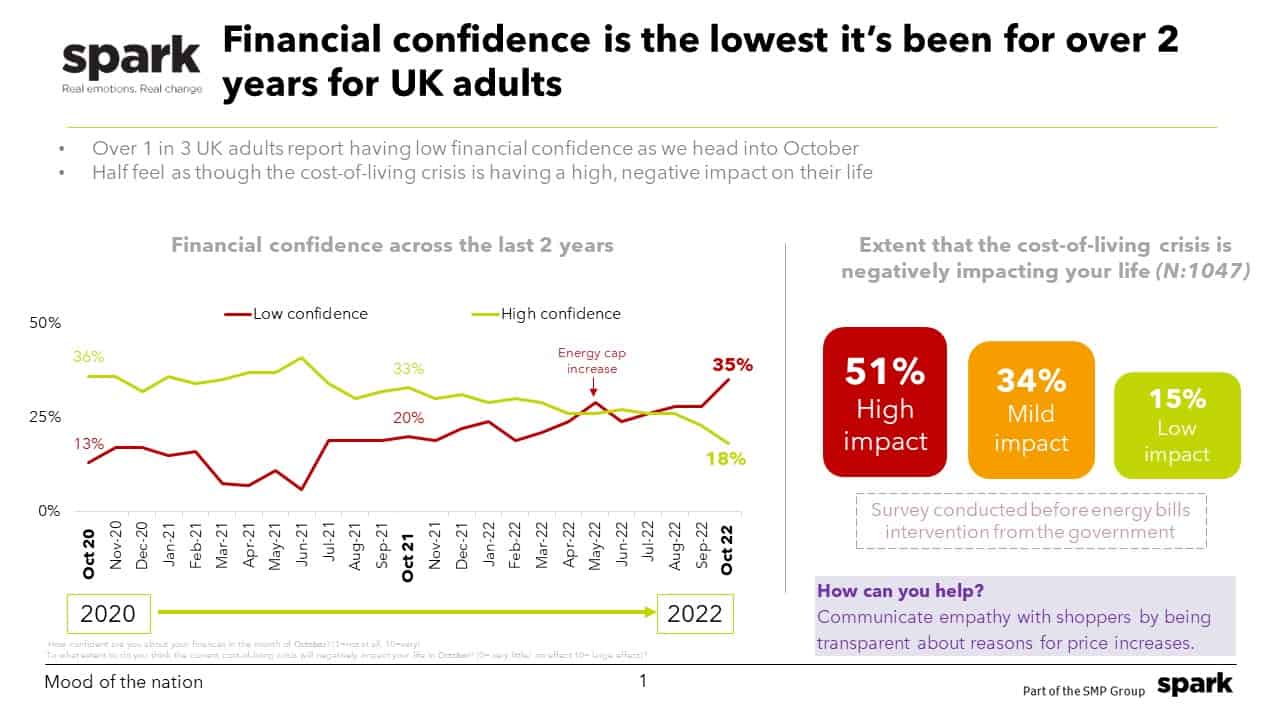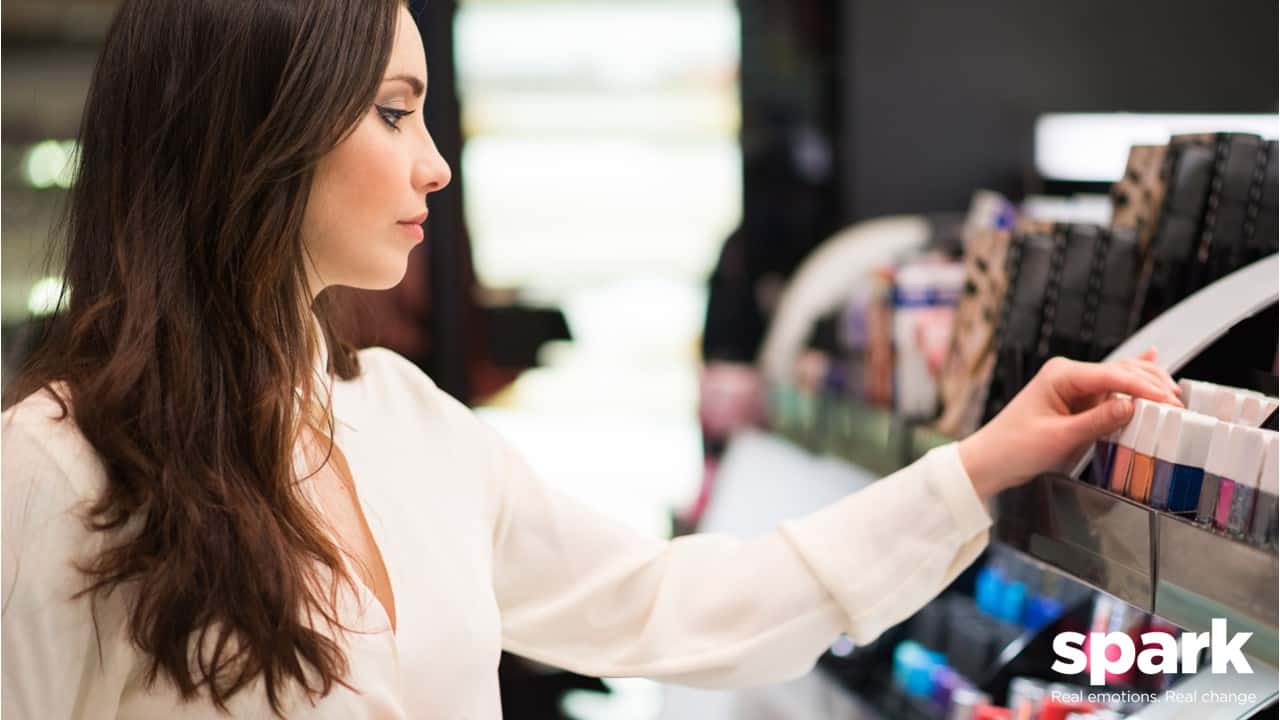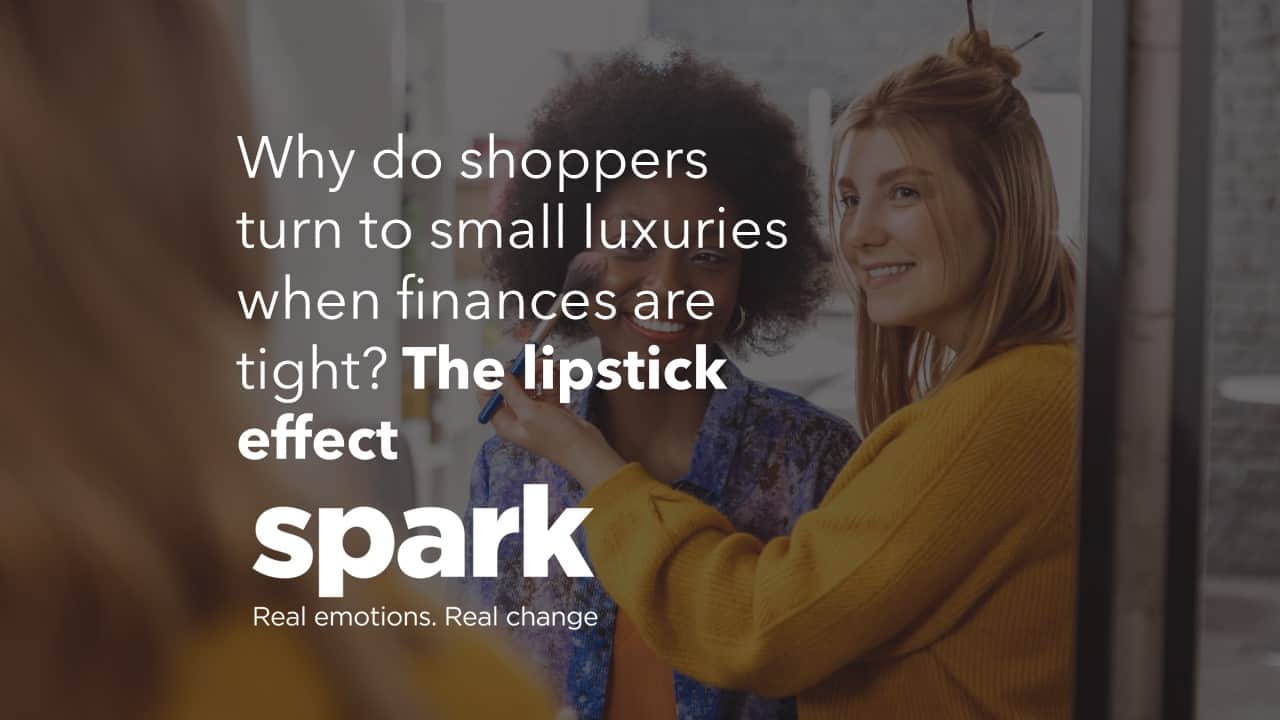2022 has been a financially hard year for many UK adults. In our October Mood of the Nation report, we saw more than 1 in 3 UK adults report feeling low financial confidence and half feel as though the cost-of-living crisis is having a high, negative impact on their life.

The cost-of-living crisis has been exacerbated by the war in Ukraine and the energy bills cap increase. In times of crisis or recession, we see people behaving differently and this is reflected in their purchases.
So, what is the lipstick effect?
The Lipstick effect is seen as an economic indicator and is often seen in times of economic hardship and recessions. The effect is when consumers still spend on small luxuries or treats to act as a small emotional uplift despite tight finances.
This effect appears on small feel-good purchases that are particularly visible, which is where the Lipstick effect gets its name. Products like makeup, nail treatments and perfumes are luxurious enough to make the consumer feel good and appear financially comfortable to their peers but at little expense. This is why such companies are often resilient during times of recession and financial downturn.
One famous example of this came from the chairman of luxury makeup brand Estee Lauder, Leonard Lauder, in 2001. He suggested evidence of the Lipstick effect when he reported a spike in lipstick sales after the 9/11 terrorist attacks.

The lipstick effect is deeply rooted in psychology
Some psychologists (Texas Christian University professors Sarah Hill and Christopher Rodenheffer), theorise that women, in particular, spend on beauty-enhancing products during the recession to make them seem more attractive to possible mates. As there are fewer men with access to resources (often there are higher levels of unemployment) and men place a premium on a woman’s physical appearance when choosing a romantic partner, more women prioritise increasing their attractiveness.
However, the Lipstick effect applies to small luxury products, not just beauty-enhancing ones. Researchers tested this theory using cheaper discount makeup products and luxury ones. They found that when offered expensive beauty products and a discount version of the same product, women chose the more expensive options. The researchers suggest they chose the more expensive brands because the women perceived them to be more effective at enhancing their beauty. (Forbes.com)
Therefore, these mood-boosting luxury purchases are deep-rooted in psychology.
Interestingly, during covid, while women were wearing face masks, their lipstick was not visible. In the absence of lipstick, women purchased fragrances to draw attention, and the majority of sales were for the more expensive perfume brands (NPD).
How can we help?
Spark Emotions are experts in Consumer Psychology and we build our deep understanding of how the brain works into every project we work on. Our cutting-edge methodologies understand how shoppers really behave and make decisions (rather than what they say), what barriers they face and the different touchpoints.
Why not put us to the test and understand more about your shoppers than ever before, get in touch.





